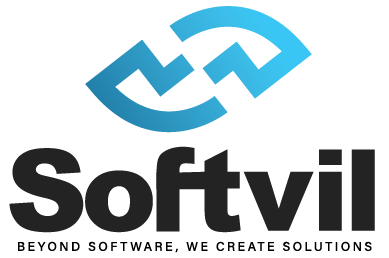Introduction
The pursuit of excellence in today’s fast-paced and fiercely competitive business landscape often hinges on accessing specialized skills that can give your company a critical edge. In this digital age, the ability to harness cutting-edge technology through software development services is more vital than ever.
The significance of accessing these specialized skills cannot be overstated. With the relentless evolution of technology and ever-growing customer expectations, staying ahead demands proficiency in software development. This article explores how leveraging specialized skills, particularly through software development services, can be a game-changer for businesses aiming to thrive in the modern marketplace.
We’ll delve into the benefits of partnering with specialized software development service providers, the types of skills in high demand, and elements that highlight the transformational power of such partnerships. As the business world becomes increasingly reliant on technology, understanding how to access these specialized skills is not just an option but a necessity for achieving lasting success.
Accessing Specialized Skills Through Outsourcing

In today’s highly competitive business landscape, specialized skills play a pivotal role in determining the success and growth of companies. Specialized skills refer to expertise and capabilities that are not commonly found within an organization’s core team but are essential to achieving specific objectives, particularly in industries like software development.
Definition of Specialized Skills and Their Importance in Business
Specialized skills encompass a wide range of technical, creative, and knowledge-based proficiencies. These skills often lie outside the core competencies of a business but are crucial for tasks like software development, data analytics, cybersecurity, and more. Their importance cannot be overstated as they enable businesses to adapt, innovate, and remain competitive in a rapidly changing environment. Access to specialized skills is a strategic advantage, allowing companies to meet project requirements and market demands efficiently.
Introduction to How Outsourcing Can Provide Access to These Skills
Outsourcing is a dynamic strategy that offers a solution to the challenge of accessing specialized skills. It involves collaborating with external service providers or software outsourcing companies that possess the specific expertise required. These outsourcing partners have dedicated teams of professionals with niche skills, industry knowledge, and experience. They can fill skill gaps in areas such as software development, quality assurance, UI/UX design, and more, providing businesses with the required expertise while allowing them to focus on their core operations.
By outsourcing, businesses can tap into these specialized skills swiftly and cost-effectively, enhancing their capabilities and staying competitive in a landscape where technology and innovation are paramount. It is a strategic imperative for companies seeking to adapt and thrive in the digital age.
The Benefits of Outsourcing for Specialized Skills

Outsourcing specialized skills is a strategic decision that offers several advantages to businesses looking to thrive in the modern, dynamic marketplace. By partnering with outsourcing companies, organizations can harness these benefits to enhance their operations and remain competitive.
Discussion of the Advantages of Partnering with Outsourcing Companies
Outsourcing companies, especially those specializing in software development and other technical fields, bring a wealth of benefits to the table:
- Expertise and Experience: These companies often have specialized teams with extensive experience and expertise in their respective domains, ensuring high-quality results.
- Resource Efficiency: Outsourcing companies have access to advanced technologies and resources that may not be readily available in-house, further enhancing project efficiency.
- Risk Mitigation: By outsourcing to experienced providers, businesses can share responsibility and mitigate potential risks associated with projects, allowing for smoother project management.
- Focus on Core Activities: Partnering with outsourcing companies allows businesses to concentrate on their core activities, thereby improving overall operational efficiency and productivity.
Emphasis on the Flexibility and Cost-Effectiveness of Accessing Specialized Skills
Outsourcing offers both flexibility and cost-effectiveness in accessing specialized skills:
- Scalability: Businesses can quickly adjust the size and composition of their outsourcing teams to align with project needs. This flexibility is particularly beneficial in the face of changing workloads.
- Cost Savings: Outsourcing can significantly reduce labor and overhead costs. Companies can access specialized skills at a fraction of the cost of hiring and maintaining in-house employees, leading to improved cost-effectiveness.
- Global Talent Access: Outsourcing companies often have a global presence, providing businesses access to a diverse pool of skilled professionals across various geographies, fostering both flexibility and cost-efficiency.
In summary, partnering with software outsourcing companies for specialized skills is a multifaceted solution that offers businesses the advantages of expertise, efficiency, risk mitigation, and cost savings. The flexibility of scaling resources and the cost-effectiveness of accessing specialized skills further underline the strategic importance of outsourcing in today’s competitive business environment.
Types of Specialized Skills in High Demand

In the ever-evolving world of technology and business, certain specialized skills are in high demand due to their pivotal role in enhancing operational efficiency and competitiveness. These skills, when outsourced to experts, provide businesses with a strategic advantage.
Exploration of Specific Skills and Domains Commonly Outsourced
- Software Development: Perhaps the most widely outsourced skill, software development outsourcing involves coding, programming, and application development. It’s crucial for creating cutting-edge software solutions, websites, and applications.
- Data Analytics and Big Data: With the increasing importance of data-driven decision-making, skills in data analysis, machine learning, and big data processing are highly sought after.
- Cybersecurity: Protecting sensitive data and systems from cyber threats is paramount. Outsourcing cybersecurity experts helps businesses stay resilient against evolving threats.
- UI/UX Design: The user interface and user experience design skills are vital for creating engaging and intuitive digital products, from websites to mobile apps.
- Content Creation and Marketing: Content skills, including content writing, SEO, and digital marketing, are often outsourced to improve online visibility and brand recognition.
Real-World Examples of Businesses Benefiting from Outsourcing These Skills

- Tech Startups: Many tech startups outsource software development to efficiently bring their innovative ideas to market, often with limited in-house resources.
- E-commerce Companies: Businesses in the e-commerce sector frequently outsource web development, digital marketing, and data analytics to enhance user experiences and drive sales.
- Financial Institutions: Banks and financial companies outsource cybersecurity services to safeguard customer data and financial transactions effectively.
- Healthcare Providers: Healthcare organizations often outsource data analysis and medical transcription to streamline administrative processes and ensure accuracy in patient records.
- Global Corporations: Large enterprises often outsource specific IT functions, such as helpdesk support or software testing, to optimize resource allocation.
These real-world examples underscore how outsourcing specialized skills, such as those mentioned, enables businesses to tap into the expertise of professionals who can elevate their operations and competitiveness. By leveraging these skills, organizations can adapt to the evolving business landscape and remain agile in an increasingly digital world.
Finding the Right Outsourcing Partner

Selecting the right outsourcing partner is critical for businesses looking to access specialized skills effectively. The partner you choose should align with your goals, exhibit expertise in the required domains, and offer a collaborative approach. Here’s how to make the right choice:
Tips for Selecting a Suitable Outsourcing Company
- Assess Expertise and Experience: Investigate the outsourcing company’s track record and expertise in the specific skills or domains you require. Ask for case studies and client references to validate their proficiency.
- Evaluate Technological Capabilities: Ensure the partner has access to the latest technologies and tools necessary for the tasks. Their technology stack should align with your project requirements.
- Consider Reputation and Reviews: Read client testimonials and reviews to gauge the partner’s reputation. A respected outsourcing company is more likely to deliver quality work.
- Data Security and Compliance: For skills involving sensitive data, like cybersecurity or healthcare, assess the partner’s security measures and compliance with relevant regulations.
- Scalability: Verify the partner’s ability to scale resources as your project demands change. Flexibility is crucial for adapting to evolving requirements.
Importance of Aligning Expertise with Business Needs
- Clear Communication: Effective communication with the outsourcing partner is essential. Clearly define your project objectives, expectations, and timelines to ensure alignment with their expertise.
- Customized Solutions: Seek a partner that tailors solutions to your specific needs. A one-size-fits-all approach may not yield optimal results.
- Cultural Alignment: If outsourcing to a different region, consider cultural alignment. A partner who understands your business culture can provide a smoother collaboration.
- Long-term Partnership: Look for a partner with whom you can build a long-term relationship. Consistent collaboration allows for a deeper understanding of your business and better alignment with your evolving needs.
- Shared Vision: Ensure your partner shares your vision and objectives. A partner who understands and aligns with your business goals is more likely to contribute to your success.
Selecting the right outsourcing partner with specialized skills is a strategic decision that can significantly impact your business. By following these tips and prioritizing alignment with your needs, you can forge a partnership that not only enhances your capabilities but also fuels your growth and success in the competitive landscape.
Conclusion
In conclusion, this article has delved into the pivotal role of specialized skills in today’s competitive business environment and how strategic outsourcing partnerships can serve as a potent tool for unlocking success. We’ve explored the definition and importance of these skills, the myriad benefits of software development outsourcing, high-demand skill domains, the significance of choosing the right partner, and examples illustrating the transformative potential of such collaborations.
The core message is clear: the ability to access specialized skills through outsourcing is a game-changer for businesses striving to thrive in the digital age. It not only enhances capabilities but also drives efficiency and cost-effectiveness.
We strongly encourage businesses to explore outsourcing as a strategic option for empowering their operations, optimizing resource allocation, and maintaining a competitive edge. By fostering partnerships that align with their goals and needs, organizations can position themselves for sustained success in a rapidly evolving and highly competitive business landscape.

